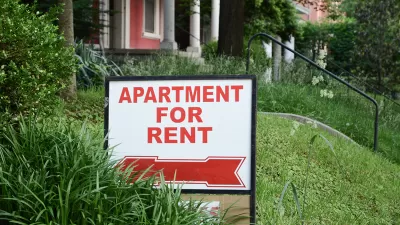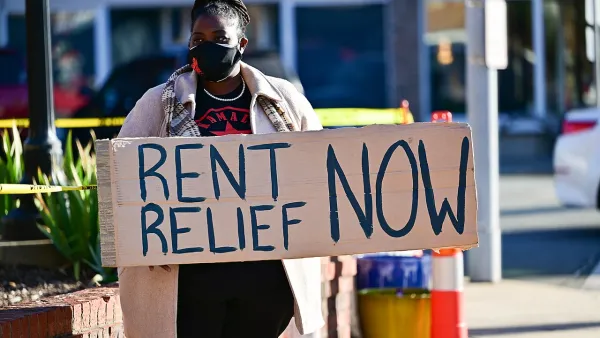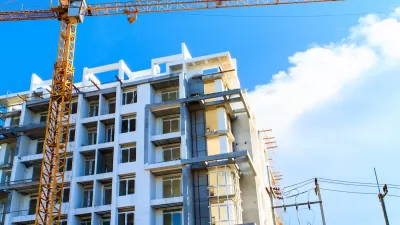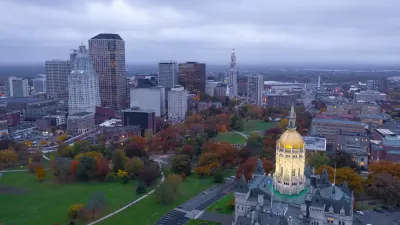The landlord tech industry, while alive and well prior to COVID-19, has ramped up in the past year to develop new ways to accumulate wealth at the expense of tenants.

Most renters know too well that COVID-19 has exacerbated racialized housing injustice, despite the powerful organizing efforts of an ever-growing housing justice movement. While numerous eviction moratoriums have passed in the U.S., these protections are weak and place the burden of proof on tenants. Most have only deferred rent debt, evictions, and houselessness. Currently, 17 million Americans are not up to date on rent payments, and 33 percent face eviction or foreclosure over the next two months. Even in cities with strong protections, landlords have been harassing and evicting tenants throughout the pandemic, instilling fear in an already confusing and shifting legislative landscape. As was the case prior to the pandemic, Black tenants have been hardest hit by evictions and eviction threats.
As tenants struggle to pay their rent, and housing prices drop and vacancy rates rise in high-cost cities such as San Francisco and New York City, landlords have repeatedly complained about losing revenue. And yet, the real estate industry appears to have plenty of money at its disposal as it spent almost $100 million in California to defeat a 2020 ballot initiative that would have limited unfair rent increases and preserved affordable housing. Furthermore, large landlords have also engaged in new forms of real estate speculation to capitalize upon the COVID-19 moment, such as investing in rent debt and exurban properties.
At the same time, an array of new real estate-oriented tech startups has emerged with tools to help landlords evict unruly or non-paying tenants. These technologies make up part of what the real estate industry describes as “property technology,” or “proptech,” and what we, as researchers with the Anti-Eviction Mapping Project and the AI Now Institute, in collaboration with people.power.media and the Ocean Hill-Brownsville Tenants Association, describe as “landlord technology.” The landlord tech industry, while alive and well prior to COVID-19, has ramped up in the past year to develop new ways to accumulate wealth at the expense of tenants.
Landlord Tech
What exactly is landlord tech, or proptech? This is a difficult question to answer thoroughly, in part because the industry is very secretive, but we can identify many examples. According to the real estate industry, it emerges from a combination of traditional real estate, big tech, venture capital, smart home systems, and financial technology. Manifestations of landlord tech can include tenant screening services, app-based short-term rental platforms, biometric facial recognition, and tools for real estate speculation.
Many date proptech’s origins to the 2008 financial crisis, when the real estate industry sought to implement emerging technologies to “disrupt” industry sluggishness, and when Airbnb and the “sharing” economy emerged. That period resulted in a large-scale shift to corporate ownership of housing, as investment companies and their shell company limited liability companies (LLCs) and limited partnerships (LPs) bought everything in sight. Proptech was used to facilitate this shift, by automating property management and asset acquisition.
We studied hundreds of companies, platforms, and their effects, and found that there are two distinct yet often overlapping categories of landlord tech being deployed:
....
FULL STORY: Keeping an Eye on Landlord Tech

Planetizen Federal Action Tracker
A weekly monitor of how Trump’s orders and actions are impacting planners and planning in America.

Chicago’s Ghost Rails
Just beneath the surface of the modern city lie the remnants of its expansive early 20th-century streetcar system.

San Antonio and Austin are Fusing Into one Massive Megaregion
The region spanning the two central Texas cities is growing fast, posing challenges for local infrastructure and water supplies.

Since Zion's Shuttles Went Electric “The Smog is Gone”
Visitors to Zion National Park can enjoy the canyon via the nation’s first fully electric park shuttle system.

Trump Distributing DOT Safety Funds at 1/10 Rate of Biden
Funds for Safe Streets and other transportation safety and equity programs are being held up by administrative reviews and conflicts with the Trump administration’s priorities.

German Cities Subsidize Taxis for Women Amid Wave of Violence
Free or low-cost taxi rides can help women navigate cities more safely, but critics say the programs don't address the root causes of violence against women.
Urban Design for Planners 1: Software Tools
This six-course series explores essential urban design concepts using open source software and equips planners with the tools they need to participate fully in the urban design process.
Planning for Universal Design
Learn the tools for implementing Universal Design in planning regulations.
planning NEXT
Appalachian Highlands Housing Partners
Mpact (founded as Rail~Volution)
City of Camden Redevelopment Agency
City of Astoria
City of Portland
City of Laramie





























